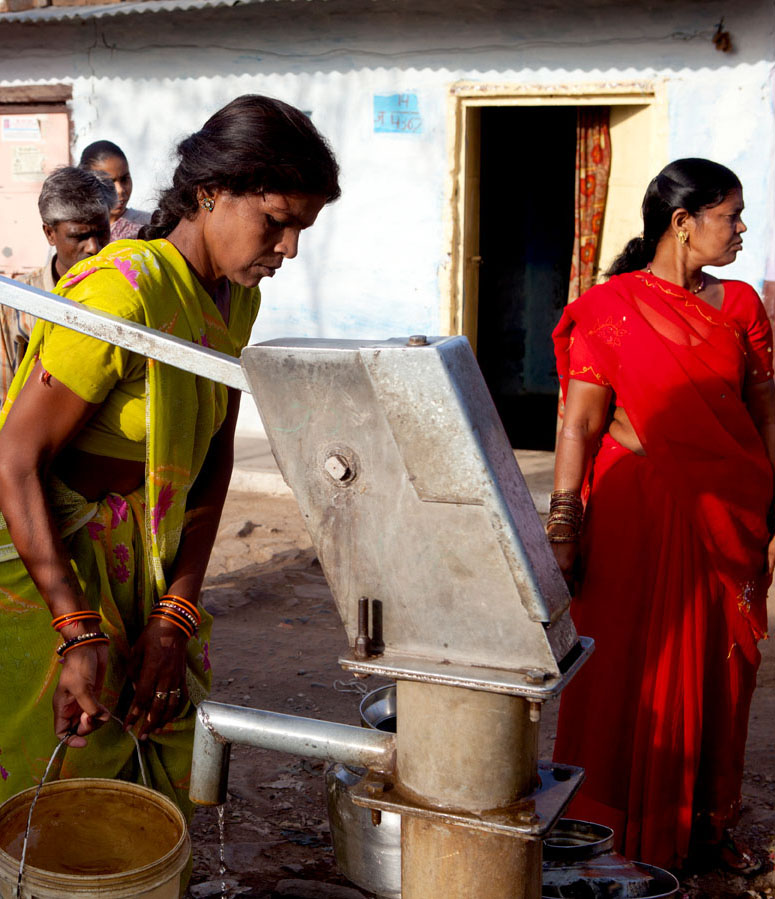
US Courts have repeatedly dismissed Bhopal lawsuits without one deposition or trial.
This week, Earth Rights International appealed to a Federal court to reconsider the case. This legal brief is powerfully written and traces that history:
This week we asked a federal appeals court to reconsider a case we have been fighting for 17 years. It is our clients’ last chance for justice, as this case has been thrown out six times already since 1999- but we have not given up, and we are not giving up now. In an emotional plea, we petitioned the court to reconsider.
This is a case of villagers in Bhopal, India who every day are exposed to toxic chemicals and pollution left behind by Union Carbide, a major chemical company.
If you are ever going to read a legal brief, let it be this one.
Over one night in December 1984, the people of Bhopal became the victims of the worst industrial disaster in history. Over the following decades, they became the victims of corporate neglect, as the pesticide plant made infamous by the gas disaster leached toxins into their drinking water, while Union Carbide Corporation (UCC) abandoned the country without cleaning up the contaminated site.
Over the last few years, they have become the victims of something even less visible. The people of Bhopal have become victims of judicial inertia. Six times, the district court has dismissed suits seeking remedies for the pollution. A prior opinion by this Court found that UCC was not liable for pollution from the plant. While this panel may be reluctant to rule differently, inertia is not a legal rule: the records are vastly different. The judicial process is a search for the truth. Courts should defer to the law and the facts presented here, not to the result in a prior decision.
The Court’s latest Summary Order is one more example of how this case has not been treated like other cases – in which courts wait for motions to dismiss, consider only arguments raised by the parties, apply settled legal standards, and consider the evidence before them. In any other pollution case against a company, the fact that the company’s own employee led the construction of the polluting plant would establish its responsibility. In any other case, if qualified experts testified that the company’s strategy of storing toxins in ponds above an aquifer – a “high risk”
strategy – caused the resulting pollution, courts would allow a jury to consider that evidence. In any other case, the victims of contamination would not need to prove that the company knew pollution would result, only that it was reasonably foreseeable.
This case has not been treated like other cases. It is time for that to change.
The court that never wanted this case.
For thirty years, Judge John F. Keenan has been dismissing Bhopal lawsuits. When lawsuits arising out of the gas disaster were filed in the U.S. in the mid- 1980s, even the Indian government argued that its own courts could not handle the complex litigation. But Judge Keenan ruled that it would be an “example of imperialism” for a U.S. court to hear the case.”1 So the case was heard in India – but then Union Carbide fled India, refusing to subject itself to jurisdiction there.
So when, in 1999, Bhopalis discovered that the lingering health effects of the gas disaster were not the only toxic legacy left by Union Carbide, some of them came to the United States to seek redress. Their groundwater was deeply contaminated, and UCC was refusing to take responsibility. They sued, and again found themselves in Judge Keenan’s court, beginning a saga that – over seventeen years of litigation – has never resulted in a single deposition, let alone a trial. At every instance, Judge Keenan has sought the most expeditious route to dismissing the Bhopalis’ claims – with the minimum process and discovery necessary to that end, and often less than that.
Petition for re-hearing: CLICK


